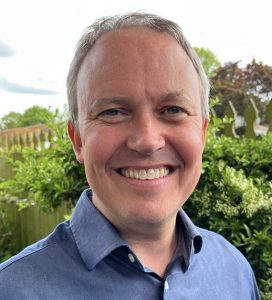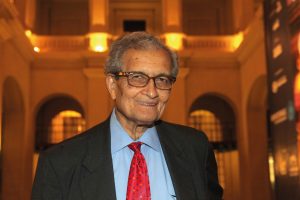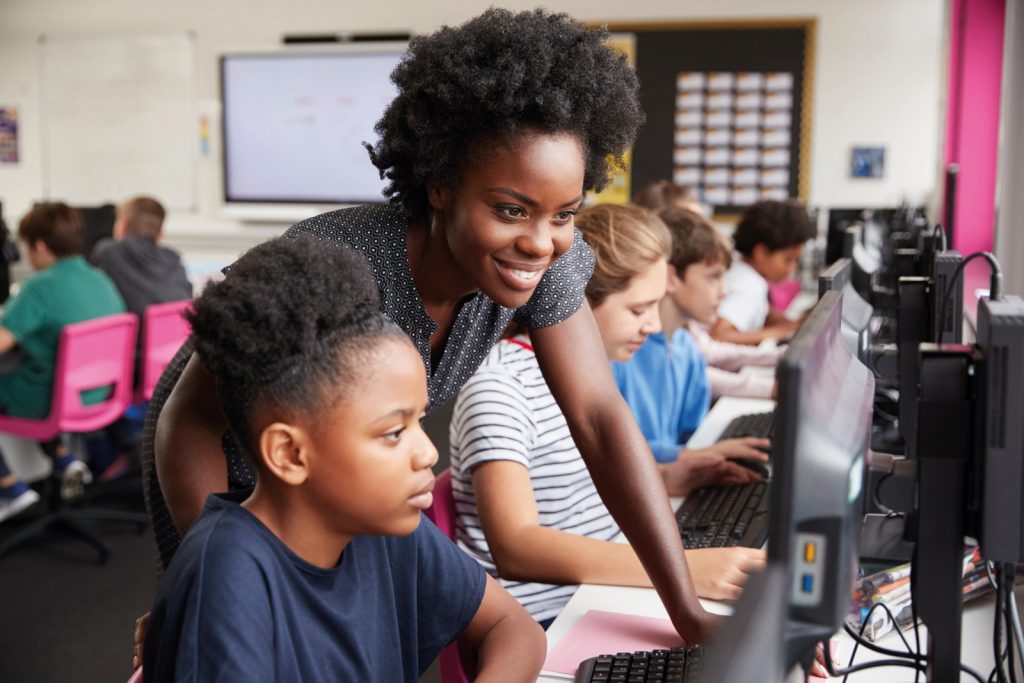Are we giving young people the capabilities they need to succeed?
In the 1980s, Nobel prize-winning economist Amartya Sen challenged traditional welfare economics with his capabilities approach – a concept that focuses on a person’s actual capability to achieve well-being or life success, rather that it being a mere right. Can this approach be translated into our education system? Shaun McInerney, education consultant and senior project coordinator for Ashoka and the Edge Foundation in the UK, explains how their ‘New Capabilities for a New World’ programme aims to help schools in greater Manchester prepare young people for an uncertain future
WHAT DOES NEW CAPABILITIES FOR A NEW WORLD AIM TO DO?
New Capabilities for a New World is a year-long leadership and strategic development programme for headteachers focused on deeper approaches to personal development, careers and the life-readiness of young people. The programme asks: How do we, as school leaders, develop new capabilities that help us set our young people up for success in a complex and changing world? This is a meaningful response to the articulated desire of young people in Greater Manchester for a more relevant curriculum, and also to the inequalities and levelling-up agenda. The programme supports headteachers to think through how they can best respond at this historical moment of rising youth unemployment, rapid technological change and the climate crisis.
Too often, students are asking, “Why am I learning this? Why is this relevant”. This has real implications for schools, engagement and, ultimately, achievement. Schools are trying to answer those questions, but they don’t find it easy because of high-stakes accountability. Inevitably, schools are focused on attainment as a measure of success. New Capabilities is a welcome opportunity to think about a wider purpose of education and the deeper leadership that makes that possible – not at the expense of attainment, but alongside it.
Equity and social disadvantage are another agenda for this programme. In England, we spend £2.5 billion per year on pupil premium (funding to improve education outcomes for disadvantaged pupils in schools) and evidence shows that the impact of this funding is marginal. My sense, and the sense of quite a lot of people, I think, is that we’re leaning the ladder against the wrong wall. It’s hard to serve disadvantaged students well solely by encouraging them to attain more qualifications. This might be part of the story but it’s not the answer to success in life. In the programme, we explore emerging evidence around this that points to the importance of the relationship young people need and the networks that enable their success.
WHY IS THE PROGRAMME CENTRED AROUND GREATER MANCHESTER?
© Monkey Business/stock.adobe.com
International NGO, Ashoka, centred its Everyone a Changemaker work initially in Greater Manchester because it’s a naturally forward-thinking city region. Greater Manchester has a tagline: We do things differently around here. Greater Manchester’s economic strategy for inclusive, zero-carbon growth relies on a culture of innovation and a forward-thinking approach to skills – and this is embodied by the Skills Team at Greater Manchester Combined Authority (GMCA), who are a partner on the New Capabilities programme. In addition, the Edge Foundation has a national reach and has been central to this collaborative impact project and the New Capabilities programme. The University of Manchester has also been a valuable partner.
HOW WERE THE 20 HEADTEACHERS ON THE PROGRAMME SELECTED?
They agreed to work with us voluntarily. We did a few information and taster sessions around the idea of changemaking, being a changemaker and what that means for education. Back in 2015, Matthew Moss High School in Rochdale was one of 15 schools selected by Ashoka as a changemaker school because of their innovative work. So, we’ve anchored the project there, and have explored the changemaker culture they have created and how that is creating agency and empathy in staff and students.
HOW MUCH AUTONOMY DO SECONDARY HEADTEACHERS HAVE?
More than they feel empowered to use, I’d say. Having led a school, I understand the constraints. OFSTED doesn’t want schools to backtrack GCSE exam provision to Key Stage 3, it wants Key Stage 3 to be about deep learning and preparing learners for key stage 4. But you can understand the pressures that teachers and schools feel they’re under, especially with such a knowledge-intensive GCSE programme.
CAN YOU GIVE AN EXAMPLE OF CHANGEMAKING THROUGH THE NEW CAPABILITIES PROGRAMME?
One example is an eco-literacy project at Little Lever School in Bolton. An Ashoka Fellow who leads The Impact Trust, which focuses on sustainability education, is working with the school’s Associate Assistant Principal. They’re doing a piece of work for Key Stage 3 geography, which involves putting young people – their perspectives on the environment, how the system needs to change and what their role is in this – at the centre. They’ve invited industry professionals and conducted a teach-back about certain elements of the curriculum to upscale industry professionals about the climate emergency, green skills, biodiversity and so on.
WHAT PHASE IS THE NEW CAPABILITIES PROGRAMME IN?
There are three phases to the programme. We have introduced new concepts such as changemaking, social capital and developmental relationships. The second phase is putting these concepts into practice and the third phase is around systems leadership. The group has identified quite high-level projects, or changes they want to see in their schools, and they’re now in the process of grounding them in strategy and practice. One big emerging theme is co-leadership – introducing a methodology where young people and school leaders sit down together and think about changemaking collaboratively.
WHAT EXCITES YOU ABOUT THIS PROGRAMME?
Two things. The first is allowing headteachers to feel that their wellbeing, development, deeper learning and sense of purpose is growing beyond the national professional qualifications (NPQ) framework. The second is exploring new ways of tackling inequity. If the practice that emerges from this programme helps us shine a light on things that might work for certain cohorts of disadvantaged young people, that’s got to be a step in the right direction.
WILL THE NEW CAPABILITIES PROGRAMME BE REPLICATED IN OTHER REGIONS OF THE UK?
This is a pilot programme, a proof of concept. The initial feedback is really strong and there are some green shoots of impact. We’re rigorously evaluating the programme with the Careers and Enterprise Company to understand what is working, and how, so that the learning can be of use to others. Hopefully, as well as deepening this work in Greater Manchester, we’ll work with another cluster region next year.
WHAT MESSAGE WOULD YOU LIKE TO SEND TO HEADTEACHERS OR TEACHERS READING THIS ARTICLE?
By stepping back, pausing and engaging in a process of deeper learning and collaboration, we’re able to surface new ways of doing things. Drawing on the expertise of Ashoka around changemaking, and best practice in real world learning from Edge, can help us connect with our wider purpose, and unlock the potential and long term success of young people.
ABOUT SHAUN
 Shaun is the programme lead and architect of New Capabilities for a New World. He works with Ashoka and the Edge Foundation and is an Honorary Research Fellow at the Alliance MBS Business School, the University of Manchester. Shaun has spent much of his career tackling inequality as a school leader and Executive Principal in inner city Liverpool.
Shaun is the programme lead and architect of New Capabilities for a New World. He works with Ashoka and the Edge Foundation and is an Honorary Research Fellow at the Alliance MBS Business School, the University of Manchester. Shaun has spent much of his career tackling inequality as a school leader and Executive Principal in inner city Liverpool.
“The template for this is my own experience with working class young people and recognising that it is through broadening their horizons, putting them into real-life situations, making their learning relevant and building their confidence by supporting them to function in new situations, with new people. This is what allows them to get ahead.”
WHY IS THE PROGRAMME CALLED ‘NEW CAPABILITIES FOR A NEW WORLD’?

Amartya Sen Source: Fronteiras do Pensamento
The 1998 Nobel Prize-winning economist, Amartya Sen, challenged the world of development economics by introducing the notion of capability. In traditional development thinking, Gross Domestic Product is considered the main vehicle for progress and economic development, and therefore human welfare. Amartya’s capabilities approach, however, argues that well-being is of primary moral importance and should be understood in terms of people’s capabilities and functionings – not just the resources they have, but how those resources enable them to live.
The Stanford Encyclopaedia of Philosophy describes Amartya’s capabilities as “the doings and beings that people can achieve if they so choose”, in other words, their opportunity to do or be certain things (for example, well-nourished, married, educated, well-travelled). Functionings are capabilities that have been realised.
“Human freedoms and development are expanded, or not, based on the number of capabilities they have,” says Shaun. “And those capabilities are dependent on a set of functionings that either enable that freedom to happen or not. If we examine the education system, we have a set of qualifications that don’t guarantee functioning in the world. Introducing the idea of long-term capabilities will hopefully help us take responsibility for how the education system equips young people to function in the world using the capabilities they have, rather than just being concerned with what they leave with when they exit the school gates.
New Capabilities for a New World is a partnership between Ashoka UK, the Greater Manchester Combined Authority Careers Hub, Edge Foundation, and the Careers and Enterprise Company.


